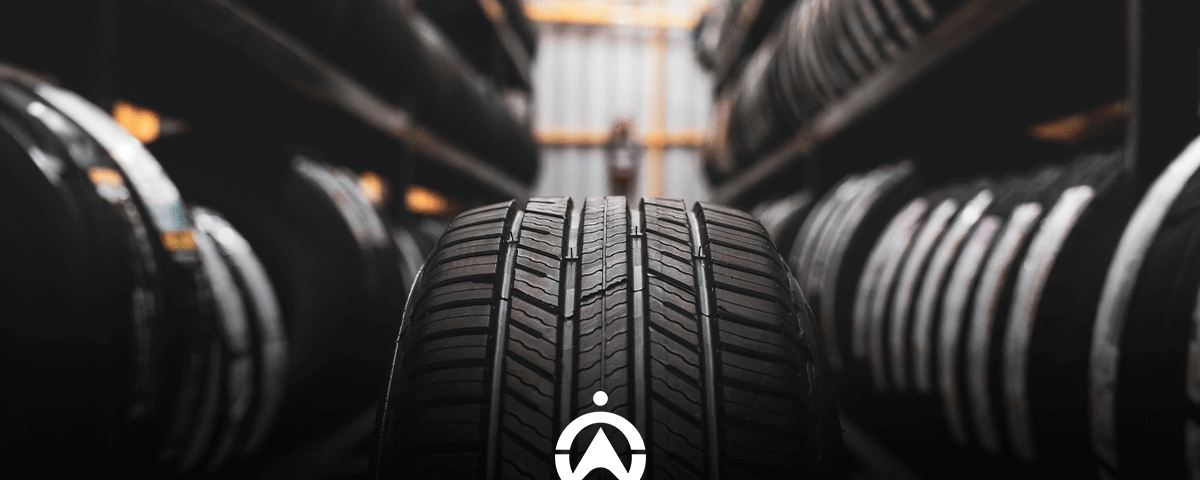Car Tyres for Sale: Think Before You Buy— Here Is Everything You Need to Know to Be Safe
Have you invested in your vehicle’s tyres?
You can’t get away with quick fixes when it comes to purchasing tyres, as these can tire out both your wallet and your safety.
Read on to find out how you can quickly give your fleet the tyre upgrade it deserves with our tyre quote solution.
Tyre Facts 101
Tyres are the wind between your vehicle’s wings, keeping it moving from point A to B. Let’s have a quick crash course and clear the air on all things tyres:
Fact 1: Tyres have an expiration date
As much as we wish they did, your tyres don’t last forever. Tyres are manufactured by using different materials, and the more the tyres are used, the more these materials weaken. So how long should you be keeping your tyres for?
The AA says that tyres that have been used for six or more years begin to deteriorate from the inside. This is very dangerous as it can cause tyre blowout, the sudden loss of inflation pressure. However, there is a more general rule that tyres need to be replaced 10 years after their manufacturing date. This is because the closer your tyres get to the 10-year mark, the more their rubber compounds begin to deteriorate. This deterioration can be worsened by different environmental factors, including extreme heat or cold, moisture, and UV light exposure.
Fact 2: Tyre pressure affects fuel expenditure
Did you know that the amount of air you’re putting into your tyres affects how much fuel your vehicle consumes? When your tyres are filled with enough air, there is less pressure being placed on your engine, which translates to less fuel being burned. Studies have shown that this can improve your mileage by 0.6%, and even up to 3%.
So if having your wheels properly inflated lowers fuel consumption, what impact do under inflated tyres have on it? Underinflated tyres experience more rolling resistance. This means that your vehicle needs more effort to move, which manifests as your engine working overtime. This can cause your average fuel consumption to increase by up to 0.5 litres per 100kms.
Fact 3: Not all tyre types are the same
They may all look the same and serve the same key purpose, but car tyres aren’t all made the same way. There are different types of tyres which all serve different purposes for different vehicles.
From all-season tyres which are the most common tyre in South Africa, to performance tyres which work to enhance acceleration and improve fuel efficiency. If you don’t know which tyre is the most appropriate choice for your needs, this can make shopping for tyres as difficult as picking a shade of dark blue for your dress or tie, affecting your safety.
Fact 4: The amount of air your tyres need is an open door away
Do you know exactly how much air your tyres need when you’re pumping them? Playing the guessing game when it comes to this can lead to you over- or under-pumping your tyres, as this can decrease braking performance and strain your vehicle suspension.
So where can you find this information? Simply open your driver door, and look at the pillar. You must have this information accurately, because under- or overinflated tyres can lead to premature tyre wear, which reduces their overall longevity.
Fact 5: Your tyre information is on your tyre
Finding the specifics in regards to your tyre is nearly impossible, right? It shouldn’t be, because all the information you need when shopping for new tyres (such as measurements and ratings) is on the actual tyre. So all those numbers aren’t random, they tell you the following information:
- Tyre width
- Tyre profile
- Radial
- Load index
- Wheel diameter
- Speed rating

What makes a good tyre?
A good tyre is more than just a shoe polish shine, it is determined by its actual build-up, and its ability to stay functional. Let’s explore the aspects of a good tyre below:
- Good tyres have good traction and grip:
The first thing you need to look for is a tyre with good traction, which is how well the tyre can grip onto the road. You can determine how good a tyre’s traction is by taking a look at its tread pattern and depth, all visible on the tyre’s exterior. When shopping for a good tyre, make sure that it has a thread pattern that pushes water and debris away, as this is important for maintaining a good grip when driving on wet roads.
- Good tyres are durable:
Good quality tyres may be costly upfront, but they’re really an investment. So don’t let the steep price scare you away, because you’ll be getting durability and longevity out of them.
- Good tyres are suitable for all weather conditions: You need tyres that will keep you going, come rain or sunshine. South Africa is home to a sub-tropical climate, which means we experience a wide range of weather conditions. Remember, not all tyres serve the same purpose or are ideal for every weather condition. An example is winter tyres, which offer incredible grip when faced with rainy roads, but wear out much faster in hot summer conditions.
Comparing the different quality tyres
There are three main tyre categories, namely:
- Cheap tyres
- Mid-range tyres
- Premium tyres
What makes these different from each other, and which one should you go for? Let’s find out with a quick comparison:
While it may be tempting to go for cheaper tyres because of their affordability, it’s a choice that will backfire on you in the long-run. Cheap tyres are not durable, which means you’ll have to replace them almost just as quickly as you bought them. Due to the low-quality rubber used to manufacture them, cheap tyres typically last between 32, 186 km – 64, 373.76km, and this number can significantly decrease when coupled with some harmful driver behaviours. Let’s explore these.
What factors damage your vehicle’s tyre quality?
Your vehicles’ tyres are already sensitive enough as is, so there are certain behaviours that you need to stay away from, as these can damage your tyre. These behaviours include:
- Harsh driving:
When you drive harshly, your tyres are the ones that pay the price. Harsh driving behaviour lowers the quality and lifespan of your tyres, which means you’re going to need to replace them sooner than expected. Two examples of this are sudden acceleration, which increases heat generation and friction in your tyres, and harsh braking, which causes uneven wear and tear on your tyre surfaces.
- Inadequate maintenance:
Reports show that poorly maintained tyres are a leading cause of car accidents in South Africa. Have you realised that your tyres are the only part of your vehicle that touches the road? This makes maintaining your tyres just as important as maintaining your whole vehicle. Some simple checks such as inflation, suspension, and balance can help you get the most out of your tyres, putting your safety in the driver’s seat.
- Under-inflation: When your tyres don’t have the right amount of air pressure, they aren’t able to maintain their shape. This causes them to wear down and experience tears quickly. This also means tyres will bend more when they roll, which increases tyre temperature and rolling resistance. These two lead to your car consuming more fuel than it should.
Need we say more about the importance of taking care of your tyres? But before we get into taking care of them, we need to look into buying them first. The process is quite simple, and the secret is: Cartrack Namibia.
Cartrack Namibia: Your secret to purchasing high-quality tyres at a cheap price
Do you want to upgrade your vehicle’s tyres, but don’t have time to run around looking for the best deal? Worry not, because Cartrack is here to help. Our team of experts takes the struggle out of getting the best tyre for your vehicles at the best price. Talk about the ultimate convenience, right? But that’s not all, because once you have your tyres, you need to maintain them. This is something that Cartrack Namibia can help you with. Let’s find out how.

Keep your tyres durable and highly effective with Cartrack’s solutions.
Give your tyres the TLC they deserve with Cartrack’s vehicle solutions. Let’s explore these below:
- GPS tracking:
Say goodbye to tyre-damaging driver behaviour with Cartrack’s live GPS tracking. This software does more than just tell you where your vehicle is. It also helps you gain full access to your trip history and trip replay. This is important for helping you spot harsh driving behaviour that can decrease your tyre’s longevity, such as:- Corner braking
– Reckless acceleration
– Corner acceleration
– Sharp turning
– Excessive idlingKnowledge is power, and by knowing what driver behaviours affect your tyres’ longevity, you can keep them running effectively for longer.
- Preventative maintenance:
Spot issues in your tyre’s health before problems boil over with Cartrack’s preventative maintenance. Stay on top of your tyre health with regular tyre monitoring, helping you know exactly when your tyres need to be replaced, and when they’re under-inflated. This is important to save costs, stay safe and make your travelling as safe and efficient as possible.
- Fuel monitoring: Monitor how much fuel your vehicle is consuming in real-time with Cartrack’s fuel monitoring system. A sudden increase in fuel consumption can be an indicator that your tyres are being overworked, letting you know that you either need to ease the load your vehicle is carrying, or replace your tyres entirely.
Drive into ultimate efficiency and safety with Cartrack’s solutions
Your tyres are an often neglected yet crucial part of your vehicles.
Click here to keep the wheels rolling and the memories flowing with Cartrack Namibia.



